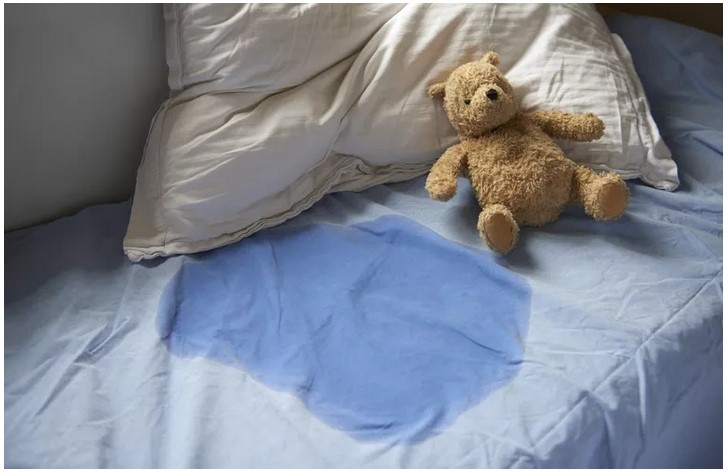
dream-induced bedwetting in adults is a condition that can be both embarrassing and disruptive to daily life. It is characterized by involuntary urination during sleep, usually due to a dream or nightmare. While this condition is more common in children, it can also occur in adults. The causes of dream-induced bedwetting in adults can vary, but may include psychological issues, medical conditions, and lifestyle factors. Fortunately, there are a variety of coping strategies that can help to reduce the frequency and severity of this condition. This article will discuss the causes of dream-induced bedwetting in adults, as well as provide tips for managing the condition.
Exploring the Causes of Dream-Induced Bedwetting in Adults: What to Look For
Bedwetting, or nocturnal enuresis, is a common problem among adults, and can be caused by a variety of factors. Dream-induced bedwetting is a particularly troubling form of the condition, as it can be difficult to identify the underlying cause. To better understand the causes of dream-induced bedwetting in adults, it is important to consider the following factors.
First, it is important to consider the individual’s medical history. Certain medical conditions, such as diabetes, urinary tract infections, and bladder or prostate problems, can contribute to bedwetting. Additionally, certain medications, such as diuretics, can also increase the risk of bedwetting. It is important to discuss any medical conditions or medications with a doctor to determine if they are contributing to the problem.
Second, it is important to consider the individual’s lifestyle. Stress, anxiety, and depression can all contribute to bedwetting. Additionally, certain lifestyle habits, such as drinking alcohol or caffeine late in the evening, can also increase the risk of bedwetting. It is important to identify any lifestyle factors that may be contributing to the problem and address them accordingly.
Third, it is important to consider the individual’s sleep habits. Poor sleep hygiene, such as not getting enough sleep or sleeping in an uncomfortable position, can increase the risk of bedwetting. Additionally, certain sleep disorders, such as sleep apnea, can also contribute to bedwetting. It is important to discuss any sleep-related issues with a doctor to determine if they are contributing to the problem.
Finally, it is important to consider the individual’s dream patterns. Certain types of dreams, such as nightmares or vivid dreams, can increase the risk of bedwetting. Additionally, certain dream-related disorders, such as REM sleep behavior disorder, can also contribute to bedwetting. It is important to discuss any dream-related issues with a doctor to determine if they are contributing to the problem.
By considering the above factors, it is possible to gain a better understanding of the causes of dream-induced bedwetting in adults. It is important to discuss any medical, lifestyle, sleep, or dream-related issues with a doctor to determine if they are contributing to the problem. With the right diagnosis and treatment plan, it is possible to reduce the frequency and severity of dream-induced bedwetting.
Coping Strategies for Dream-Induced Bedwetting in Adults: Tips for Managing Symptoms
Bedwetting, or nocturnal enuresis, is a common problem among adults. It can be caused by a variety of factors, including stress, anxiety, and even dreams. Dream-induced bedwetting can be particularly difficult to manage, as it is often difficult to control the content of one’s dreams. However, there are a few strategies that can help adults cope with this issue.
1. Keep a Dream Journal: Keeping a dream journal can help you identify patterns in your dreams that may be causing your bedwetting. Writing down your dreams can also help you process them and gain insight into the underlying causes of your bedwetting.
2. Practice Relaxation Techniques: Relaxation techniques such as deep breathing, progressive muscle relaxation, and guided imagery can help reduce stress and anxiety, which can be a major cause of dream-induced bedwetting.
3. Exercise Regularly: Regular exercise can help reduce stress and improve sleep quality, which can help reduce the frequency of dream-induced bedwetting.
4. Avoid Caffeine and Alcohol: Caffeine and alcohol can interfere with sleep and increase the likelihood of bedwetting. Avoiding these substances can help reduce the frequency of dream-induced bedwetting.
5. Talk to a Professional: If you are struggling to manage your dream-induced bedwetting, it may be helpful to talk to a mental health professional. A therapist can help you identify the underlying causes of your bedwetting and develop strategies to cope with it.
By following these tips, adults can better manage their dream-induced bedwetting and reduce its frequency. It is important to remember that bedwetting is a common problem and that there are strategies available to help manage it.
Conclusion
In conclusion, dream-induced bedwetting in adults is a complex issue that can be caused by a variety of factors. While there is no one-size-fits-all solution, there are a number of coping strategies that can be employed to help reduce the frequency and severity of episodes. These strategies include lifestyle changes, such as reducing stress and avoiding caffeine, as well as medical interventions, such as medications and bladder retraining. With the right combination of strategies, adults can successfully manage their dream-induced bedwetting and lead a more comfortable and fulfilling life.